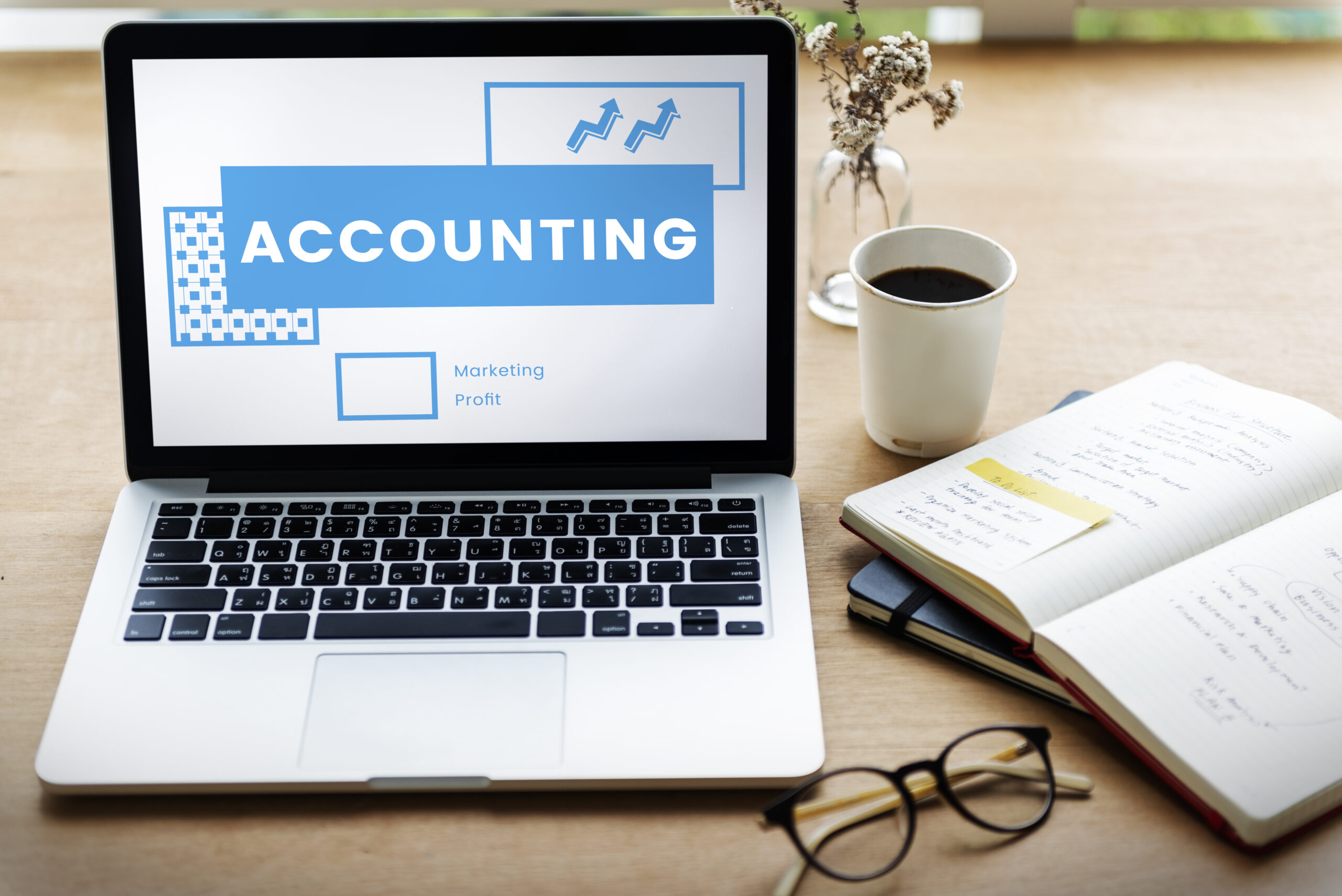Understanding the difference between accounting and bookkeeping is one of the most common challenges for new business owners. Many entrepreneurs use the terms interchangeably, which can lead to tax mistakes, cash-flow confusion, weak financial records, and even compliance risks.
If you run or plan to start a home-based business, you’ve probably heard titles like bookkeeper, accountant, or CPA and wondered how their roles actually differ. Knowing how these financial functions work together can save you money, reduce stress, and protect your business long-term.
This beginner-friendly guide explains everything in clear, practical language, with real examples you can apply immediately.
Bookkeeping Explained: The Foundation of Financial Health

What Bookkeeping Actually Involves
Bookkeeping is the systematic recording of every financial transaction in your business. Think of it as creating a detailed money diary that tracks:
Income streams
Outgoing expenses
Daily operations
Accounting Explained: Turning Data Into Strategy

What Accounting Actually Involves
While bookkeeping records what happened, accounting explains why it happened and what to do next. Accountants transform your bookkeeping data into:
Financial statements:
- Income statements (profit and loss reports showing if you’re actually making money)
- Balance sheets (snapshot of assets, liabilities, and equity at a specific moment)
- Cash flow statements (tracking money movement, not just paper profits)
Strategic analysis:
- Trend identification – “Your marketing costs jumped 40% but sales only rose 10%”
- Profitability assessment – “Product A generates 60% of profit while Product B loses money”
- Budget forecasting – “Based on current trends, you’ll need $15K working capital next quarter”
Compliance and reporting:
- Tax preparation – Quarterly estimates and annual filings (1040, Schedule C, 1099s)
- Audit support – Providing documentation if the IRS comes knocking
- Regulatory filings – Industry-specific reports or licensing requirements
Accounting Frequency: Strategic Touchpoints
Monthly recommended: Review financial statements, assess budget vs actual performance
Quarterly essential: Prepare tax estimates, analyze trends, adjust strategies
Annually critical: File taxes, conduct year-end close, plan next year’s budget
Ad-hoc consultations: Major purchases, hiring decisions, pricing changes, loan applications
Accounting and Bookkeeping Difference: Complete Comparison
| Aspect | Bookkeeping | Accounting |
|---|---|---|
| Primary Purpose | Recording daily transactions | Analyzing and interpreting financial data |
| Scope | Operational and routine | Strategic and advisory |
| Key Skills | Organization and accuracy | Financial analysis and tax expertise |
| Output | Transaction records and ledgers | Reports, insights, and tax filings |
| Frequency | Daily or weekly | Monthly, quarterly, yearly |
| Typical Cost | $20–50 per hour | $150–400 per hour |
| Business Stage | Needed from day one | Critical as revenue grows |
The Dependency Relationship Between Accounting and Bookkeeping
Bookkeeping → Accounting (One-way street)
Poor bookkeeping = Garbage data in → Worthless accounting insights out
Excellent bookkeeping = Clean data in → Accurate strategic guidance out
You literally cannot do accounting without bookkeeping first. But you can do bookkeeping without formal accounting—though you’re leaving money on the table.
Outsourcing vs. In-House: Choosing the Best Setup
As financial tasks grow, businesses must decide whether to manage bookkeeping and accounting internally or outsource them. The best option depends on budget, complexity, and growth stage.
1. In-House Team
Best for: Stable businesses with frequent transactions or employees.
Pros: Full control, quick access to data, deep operational knowledge.
Cons: Highest cost, requires supervision, limited expertise if one person handles everything.
Cost: Bookkeeper $35K–$65K/year; Accountant $65K–$120K/year.
2. Outsourced Freelancers
Best for: Small businesses needing flexible, affordable help.
Pros: Scalable, pay-as-needed, wide talent pool.
Cons: Quality varies, needs monitoring, less suited for regulated industries.
Cost: Bookkeepers $15–$50/hr; Accountants $40–$150/hr.
3. Virtual Firms
Best for: Full financial support without hiring staff.
Pros: Dedicated teams, consistent reports, higher expertise.
Cons: Less personal, fixed fees, slower communication at times.
Cost: $200–$700/month bookkeeping; $1K–$4K/year tax services.
4. Hybrid Model
Best for: Fast-growing businesses.
Pros: Daily tasks in-house, strategy outsourced, balanced cost and expertise.
Cons: Requires coordination and clear role definition.
Remote Hiring Tips
Check time-zone overlap, data security, local tax knowledge, and communication clarity.
Step-by-Step Implementation Guide
Phase 1: Foundation (Week 1-2)
- Open a separate business bank account and credit card
- Choose bookkeeping software (start free with Wave if unsure)
- Set up a basic chart of accounts (income categories + expense categories)
- Connect bank accounts to the software for automatic transaction imports
- Create a filing system (physical or digital) for receipts
Phase 2: Consistency (Month 1-3)
- Schedule weekly “money dates” (30-60 min to update bookkeeping)
- Categorize all transactions as they occur
- Reconcile bank accounts every Friday
- Save all receipts immediately (snap photos with your phone)
- Track mileage if you drive for business (apps like MileIQ automate this)
Phase 3: Analysis (Month 3-6)
- Generate monthly profit and loss statement
- Compare actual spending vs your budget
- Identify your top 3 expense categories
- Calculate basic metrics (profit margin, average project value)
- Book first CPA consultation for quarterly tax estimate
Phase 4: Optimization (Month 6-12)
- Hire bookkeeper if you’re spending 5+ hours/week on data entry
- Establish quarterly accounting reviews with CPA
- Implement tax-saving strategies (retirement contributions, equipment purchases)
- Create cash flow forecast for next 6-12 months
- Set up automated invoicing and payment reminders
Phase 5: Scaling (Year 2+)
- Consider upgrading to more robust accounting software
- Build financial dashboard tracking key metrics
- Transition from bookkeeper to accounting team as revenue grows
- Explore CFO services for major strategic decisions
- Conduct annual financial audit (even if not legally required)
Real-World Case Studies
Case Study 1: Freelance Designer Who Avoided $4,200 in Penalties
Background:
Sarah earned $85K yearly from her graphic design business but kept poor financial records and stored receipts loosely.
Problem:
She couldn’t prove $12,000 in expenses at tax time and missed quarterly tax payments.
Solution:
-
Hired a bookkeeper for $300/month
-
Used a CPA for quarterly tax estimates and filing
-
Set up QuickBooks with automatic bank feeds
Results:
-
Recovered $4,200 in deductions
-
Avoided $1,800 in IRS penalties
-
Saved 8 hours per week
ROI:
$3,600 annual cost produced $6,000 in first-year savings.
Case Study 2: E-Commerce Store That Found 23% Waste
Background:
Mike’s Shopify store generated $280K in revenue, but profits were very low despite steady sales.
Problem:
He tracked transactions in QuickBooks but never analyzed financial reports.
Solution:
-
Hired a CPA for monthly reviews ($500/month)
-
Analyzed profit by product category
-
Identified 40% of products as unprofitable
Results:
-
Removed low-margin items and focused on top performers
-
Increased profit margin from 12% to 35%
-
Cut inventory costs by $18,000
Expert Insights on the Accounting and Bookkeeping Difference
“The 80/20 Rule of Financial Management”
“In my 15 years as a CPA, I’ve seen this pattern: 80% of small business financial problems stem from poor bookkeeping, not bad accounting advice. You can’t analyze data you don’t have. Master bookkeeping first, then layer in accounting strategy.”
— Jennifer Martinez, CPA, Small Business Tax Specialist
“Software Doesn’t Replace Expertise”
“QuickBooks is a powerful tool, but it’s like owning a professional camera—having it doesn’t make you a photographer. The software handles bookkeeping automation beautifully. But interpreting those reports, spotting red flags, and planning tax strategy? That requires human accounting expertise.”
— David Chen, Certified Management Accountant
“The Delegation Sweet Spot”
“Most entrepreneurs should handle bookkeeping themselves for the first $50K in revenue—it forces you to understand your numbers. But once you hit $100K, every hour you spend on data entry is an hour not spent growing your business. That’s when you delegate bookkeeping and invest in quarterly accounting guidance.”
— Lisa Thompson, Small Business Consultant, SCORE Mentor
Let’s Wrap This Up
Bookkeeping and accounting are distinct, and understanding the accounting and bookkeeping difference is essential for every home-based business owner. While bookkeeping keeps your daily finances systematized and organized, accounting helps you interpret those numbers to make informed decisions with confidence. Even though these tasks might not sound exciting, they are crucial if you want to build a business that runs smoothly and endures without stress or confusion.
Check out Home Business Magazine for simple how-tos, expert advice, and easy tools to help you build a successful home-based business.
Frequently Asked Questions (FAQs)
Q1: Is bookkeeping part of accounting?
Yes. Bookkeeping records all financial transactions, which form the foundation for accounting. Accountants then analyze this data to create reports and guide business decisions.
Q2: Which is more important for small businesses: accounting or bookkeeping?
Both are essential. Bookkeeping ensures accurate daily records, while accounting interprets this data to support decision-making, planning, and growth strategies.
Q3: Can I handle bookkeeping and accounting on my own?
Small businesses can manage bookkeeping using software, but accounting—especially tax planning and analysis—often requires professional expertise for accuracy.
Q4: What are common mistakes in bookkeeping?
Typical mistakes include not reconciling accounts regularly, mixing personal and business finances, and failing to track receipts, which can lead to errors and tax issues.
Q5: How often should I review my financial statements?
Monthly reviews are recommended. Regular monitoring helps identify trends, catch errors early, and ensures better financial control over your business.
Find a Home-Based Business to Start-Up >>> Hundreds of Business Listings.

















































